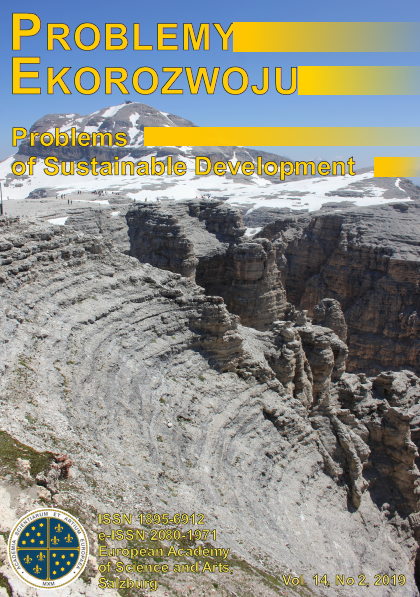ANNAN K., 2008, Quotes on human rights, https://www.unfpa.org/resources/quotes-human-rights (6.11.2018).
ARBIA G., 2014, A primer for spatial econometrics: with applications in R, Palgrave Macmillan, Springer, London.
BENAVOT A., 1989,. Education, gender, and economic development: A cross-national study, in: Sociology of Education, p. 14-32.
BANERJEE S., CARLI N B. P., GELFAND A. E., 2004, Hierarchical modeling and analysis for spatial data, Chapman and Hall/CRC.
BOULANGER P. M., 2008, Sustainable development indicators: A scientific challenge, a democratic issue, in: SAPI EN. S. Surveys and Perspectives Integrating Environment and Society.
BOOTH C., 2001, Seeking true democracy: The challenge and promise of full equality for women, Chatham House.
CORNING A. F., MYERS D. J., 2002, Individual orientation toward engagement in social action, in: Political Psychology, 23(4), p. 703-729.
COWAN G., 1998, Statistical data analysis, Oxford University Press.
DOMAŃSKA A., ŻUKOWSKA B., ZAJKOWSKI R., 2018, Green entrepreneurship as a connector among social, environmental and economic pillars of -sustainable development. Why some countries are more agile?, in: Problemy Ekorozwoju/ Problems of Sustainable Development, 13(2), p. 67-76.
EAGLY A. H., JOHANNESEN-SCHMIDT M. C., VAN ENGEN M. L., 2003, Transformational, transactional, and laissez-faire leadership styles: A meta-analysis comparing women and men, in: Psychological Bulletin, 129(4), p. 569.
EAGLY A. H., JOHANNESEN-SCHMIDT M. C., 2001, The leadership styles of women and men, in: Journal of Social Issues, 57(4), p. 781-797.
Engendering Development through Gender Equality in Rights, Resources and Voice, 2001, World Bank, Oxford University Press.
FOTHERINGHAM A. S., BRUNSDON C., CHARLTON M., 2003, Geographically weighted regression, John Wiley & Sons, West Atrium.
GAARD G., GRUEN L., 2005, Ecofeminism: Toward global justice and planetary health, in: Environmental philosophy: From animal rights to radical ecology, eds. Zimmerman, Callicott, Warren, Klaver, & Clark, Pearson Prentice Hall, New Jersey, p. 155-177.
Gender and sustainable development: Maximising the economic, social and environmental role of women, 2008, Organisation for Economic Co-operation and Development, Paris.
Gender Equality as Smart Economics, 2009, The World Bank, Washington DC.
GIDDINGS B., HOPWOOD B., O'BRIEN G., 2002, Environment, economy and society: Fitting them together into sustainable development, in:. Sustainable development, 10(4), p. 187-196.
GUTERREZ M. (ed.), 2003, Macro-economics: Making gender matter: Concepts, policies and institutional change in developing countries, Zed Books.
Green jobs and women workers: Employment, equity, equality, draft report for SustainLabour/International Trade Union Confederation (ITUC), 2009, SustainLabour.
HILL M. A., KING E., 1995, Women's education and economic well-being, in: Feminist Economics, 1(2), p. 21-46.
HOPWOOD B., MELLOR M., O'BRIEN G., 2005, Sustainable development: Mapping different approaches, in: Sustainable Development, 13(1), p. 38-52.
Implementing the Goals of Global Responsibilities https://www.un.org/sustainabledevelopment/sustainable-development-goals/ (6.11.2018).
The Global Gender Gap Report 2017, https://www.weforum.org/reports/the-global-gender-gap-report-2017 (5.11.2018).
2030 Agenda for Sustainable Development, https://www.un.org/sustainabledevelopment/development-agenda/ (5.11.2018).
JEFFREY K., WHEATLEY H., ABDALLAH S., 2016, The Happy Planet Index 2016, a global index of sustainable wellbeing, New Economics Foundation.
RODGERS L. J., NICEWANDER W. A., 1988, Thirteen ways to look at the correlation coefficient, in: The American Statistician, 42(1), p. 59-66.
MANSBRIDGE J., 1999, Should blacks represent blacks and women represent women? A contingent ‘yes’, in: The Journal of Politics, 61(3), p. 628-657.
MIZOBUCHI H., 2014, Measuring world better life frontier: A composite indicator for OECD better life index, in: Social Indicators Research, 118(3), p. 987-1007.
MIES M., SHIVA V., 1993, Ecofeminism, Zed Press, London.
WCED, 1987, Our Common Future. The Report of the World Commission on Environment and Development (Brundtalnd Report), Oxford University Press, New York.
O'RIORDAN T., 1989, The challenge for environmentalism, in:. New Models in Geography, eds. Peet R., Thrift N., Unwin Hyman, London.
PAWŁOWSKI A., 2008, How many dimensions does sustainable development have?, in: Sustainable Development, 16(2), p. 81-90.
PHILLIPS A., 1995, The politics of presence, Clarendon Press.
RYDZEWSKI P., 2018, Indicators of social aspects of sustainable development in selected nationwide databases, in: Problemy Ekorozwoju/ Problems of Sustainable Development, 13(1), p. 69-74.
SEGUINO S., 2000, Gender inequality and economic growth: A cross-country analysis, in: World Development, 28(7), p. 1211-1230.
STEVENS C., 2010, Are women the key to sustainable development?, The Frederick S. Pardee Center for the Study of the Longer-Range Future, Boston University, Boston.
TAYLOR R., 1990, Interpretation of the correlation coefficient: A basic review, in: Journal of Diagnostic Medical Sonography, 6(1), p. 35-39.
Transforming Our World: The 2030 Agenda for Sustainable Development, 2015, United Nations Sus-
tainable Development Knowledge Platform, https://sustainabledevelopment.un.org/post2015/transformingourworld (5.11.2018).
The Global Gender Gap Report 2017. (2017). World Economic Forum.
Women in parliament in 2017. The year in review, 2017, Inter-Parliamentary Union.
Women matter, time to accelerate. Ten years of insights into gender diversity, 2017, McKinsey & Company.
World Development Report 2012: Gender Equality and Development, 2012, The World Bank, http://go.worldbank.org/CQCTMSFI40 (5.11.2018).
ZAJKOWSKI R., 2018, Transfery władzy, własności i wartości w przedsiębiorstwach rodzinnych. Efekt drugiego pokolenia, C. H. Beck, Warsaw.



